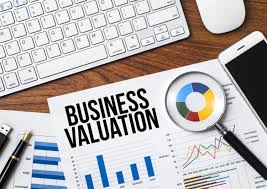Business owners need to know how to increase company valuation to maximize financial benefit. You can increase the value of your business by following the guidelines presented here. You will be able to sell your business for more money and enjoy the rewards of better running business. These principles should be carried out even if you have no plans to sell. You make more income, have less stress, and work far fewer hours when you increase the value of your business.
Transferability of the Owner’s Skills
To increase your company’s value for sophisticated buyers, the owner needs to have a trusted team that can do the job rather than the owner being the only person who wears all the hats in the business. When you are the major element in your firm’s operation, your company will only be attractive to less sophisticated buyers seeking a job and will not pay the best price.
Sophisticated Buyers
The sophisticated buyer is not seeking a job but a firm to manage and develop. Any company can be attractive to these buyers when you develop a team and create systems in the business. Policies and procedures should be in place to serve as an operations manual for a professional manager to run your business. Remember, you should be working on your business—not in it. Not only is working on the business more fun, but your payout is bigger in the end. The cost will likely be associated with this concept as you hire employees and outsource tasks. Still, your business will be scalable, so you will eventually be able to generate more profit in your business operation and a far larger valuation whenever the business is transferred.
Good Financial Records
The financial records of private companies are for the owner’s benefit and aren’t subject to scrutiny like a public
Reducing Customer Concentration
Issues with customer concentration occur when a high percentage of sales comes from a few customers. This situation can greatly diminish your valuation and make your business vulnerable if one of those large customers fails or goes elsewhere to do its business. Some customers, realizing your business is overly dependent on them, may take advantage of this situation and become very demanding about pricing, service, and other demands. Such a customer may require so much of the company resources that no resources are left to grow your business.
Risks of Customer Concentration
Customer concentration issues are dangerous because if the large customer leaves, it may be impossible to scale overhead and human resources back to a level where you can still be profitable. No business has the perfect distribution of customers, but no one customer should ever have the power to affect the business should it leave negatively. What percentage of sales do your top ten customers represent? Too much dependence on too few products or too few industries will be also considerably lower a business’s value.
Proprietary Products
Proprietary products increase business valuation because they are exclusively owned by your company and restrict others from making the same product. This allows proprietary products to enjoy price powering and exclusivity in the marketplace. Constantly look for ways to innovate in all facets of your business. Proprietary products and transferrable technology are great value adders for your business. Proprietary products and technology can multiply valuations many times over in the marketplace.
Increase Valuation By Acquisition
Expanding your company’s valuation through acquisition is a solid strategy that large businesses always use. Acquiring other companies is an underused strategy by most small businesses. Organic growth is the best but can be slow and somewhat unpredictable. Some niches or mature industries grow too slowly to rely solely on organic growth. Public companies routinely acquire companies with a smaller price-per-earnings ratio than their own, which results in the larger company being valued higher.
How To Increase Company Valuation By Acquisition
This acquisition strategy works just as well for small to mid-size companies as it does for publicly traded companies. As companies become larger and increase earnings, they are perceived to be a more sophisticated and safer bet. This perception of security translates into higher valuations on a price-per-earnings basis. A company with $75,000 in earnings may be valued at one to three times or $75,000 to $225,000. But if you take a company with $150,000 in earnings, the company can be valued at four to seven times earnings or $600,000 to $1,050,000. The earnings double, but the valuation increases more than five times.
Create Exponential Growth in Valuation
This case uses a relatively small company for illustration, but valuations gain exponentially as earnings increase. Public companies can have astronomical valuations. Amazon has a price-to-earnings ratio (P/E Ratio) of over 100 as of this writing. That would be like paying $7.5 million for $75,000 in earnings. You won’t likely get Amazon’s multiple, but the point is that higher earnings supercharge the company’s valuation. “Peter Drucker says If you can’t measure it, you can’t improve it. Every business owner should know the current market value of their business. “Won’t you don’t measure, you cant improve? We offer a free preliminary appraisal so you can know what your business is worth and how to improve it. Click here for a free appraisal of your business.
